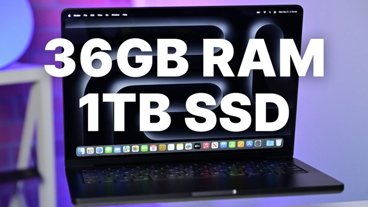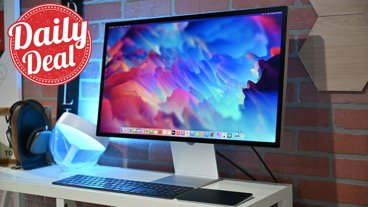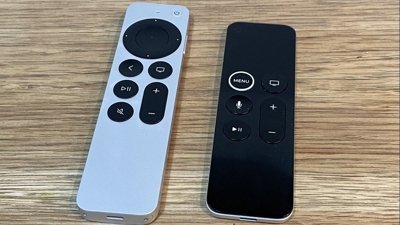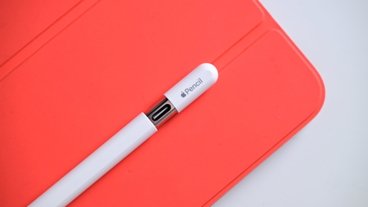Apple's iPad finds enterprise adoption at Wells Fargo, SAP
Wells Fargo initially bought 15 iPads, and used two of them in May to demonstrate products at an investor conference, the company told Businessweek. Wells Fargo spent two years looking at the iPhone, but approved the iPad in just two weeks after it was released in April.
Now, the bank plans to buy more — when they're available. Megan Minich, senior vice-president with the San Francisco, Calif., company, reportedly said they have "a bunch" ordered that they have not yet received.
And Amy Johnson, vice president with Wells Fargo for the company's online portal and mobile strategy, said she envisions finance officials or account representatives using devices like the iPad to approve multimillion-dollar wire transfers. The company found that finance executives of large companies had used the iPad to access corporate Wells Fargo accounts.
Author Rachael King also noted that SAP, Tellabs, and Mercedes-Benz have all embraced the iPad.
Use of the iPad by Mercedes-Benz to sell cars was detailed in May. The Daimler-owned brand equipped 40 dealerships with Apple's device in an effort to more effectively sell and lease cars, using the hardware to handle credit applications. Now, the company is considering using iPads at all of its 350 U.S. dealerships.
Rob Enslin, president of SAP North America, told Businessweek that when he travels, he only carries an iPad and a BlackBerry. He said Apple's new hardware has almost allowed him to "run a paperless office." SAP developed an application that lets managers approve shipping of customer orders, and has a handful of other apps planned.
King also penned a second story in which she spoke with Tim Markley, president of Markley Enterprise, a 75-person Indiana firm that designs marketing displays for stores and trade shows. Markley's company uses three iPads to replace paperwork and also serve as a portable computing device. They found that the use of the iPad cut down on 30 percent of employee's walking time, making them more efficient.
Another company, Arhaus Furniture, expects to save $100,000 in annual paper costs when it issues 50 iPads to its delivery drivers. The company will rely on a custom iPad application that is being developed.
But Markley didn't want to pay to have his own application developed, so he searched the App Store and found one created by a Japanese developer for $1.99.
Apple made it clear it sees the iPad as a potential business tool when it released its Office-compatible iWork productivity suite for the multitouch device. But that was only the beginning for Apple's enterprise push. It is expected that future software updates will allow direct network printing from IPad apps, as well as support for accessing shared files from a local file server.
Users, too, have seen the iPad as a device they can use for work. A survey conducted in March, before the iPad was released, found that more than half of prospective buyers planned to do as Enslin does, and use their iPad for work while traveling.
 Slash Lane
Slash Lane












 Charles Martin
Charles Martin
 Andrew Orr
Andrew Orr
 Wesley Hilliard
Wesley Hilliard
 William Gallagher
William Gallagher



 Malcolm Owen
Malcolm Owen









34 Comments
First!
Just a little thinking outside the box - and more iPads sold.
Funny how no one was ever going to buy these - and they're still sold out months after their introduction. This is only the beginning.
It's good to see Apple getting a head start with inclusion of its tablet in business settings, as opposed to its impending competitors(cisco, HP, etc.).
But that was only the beginning for Apple's enterprise push. It is expected that future software updates will allow direct network printing from IPad apps, as well as support for accessing shared files from a local file server.
...and when they update the iOS for this functionality, as well as modifying the "Notes" tool to allow sketching/doodling/handwriting recognition (either with your finger or a stylus). I will be first in line to buy one. YES YES YES, AutoDesk (amongst others) "has an App for that" but i want more integration of native tools. This device should be a digital notepad, IMO
Just think it it allowed you to print from the darn thing...
That's the main thing I miss.
First!
Just a little thinking outside the box - and more iPads sold.
Funny how no one was ever going to buy these - and they're still sold out months after their introduction. This is only the beginning.
It's way past time for normal people to completely ignore what the so-called tech types predict. declare, and otherwise pontificate about. And that includes the "I'll buy one when it has XXX" posts in this very thread. They have been totally, completely, embarassingly, ignorantly WRONG about every single product release by Apple in the last 5 years. They have no clue about the market, no clue about what normal users want, and clearly no clue about what a company like Apple is all about. They don't have even a tiny bit of a clue when it comes to useability and customer satisifaction.
It's time we start calling these people out on their crap. The tech/nerd wannabe emperors have no clothes. They live in their holier-than-thou fantasy world of technical specs and features. They lord it over on their family members and co-workers. They as ludicrous as the Saturday Night Live "your company computer guy" sketches of a few years ago.